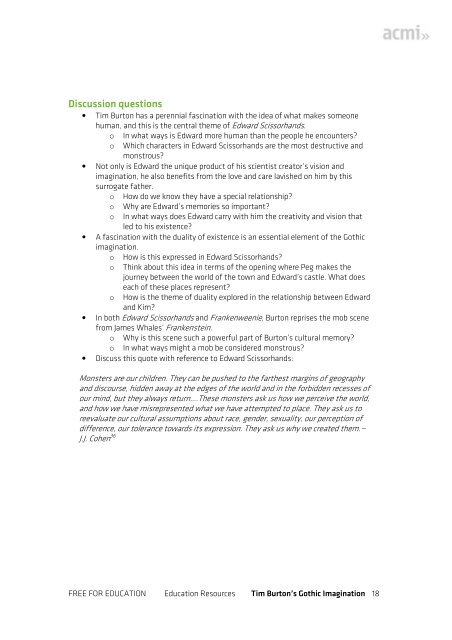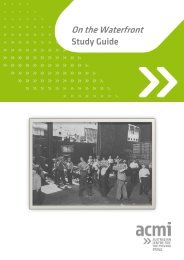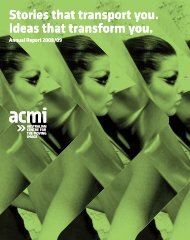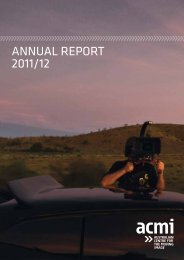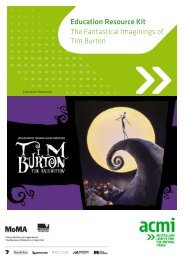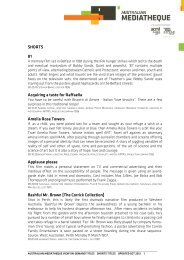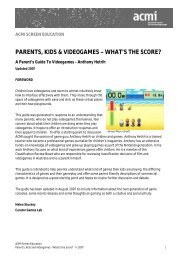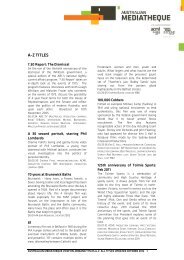Tim Burton's Gothic Imagination
Tim Burton's Gothic Imagination
Tim Burton's Gothic Imagination
You also want an ePaper? Increase the reach of your titles
YUMPU automatically turns print PDFs into web optimized ePapers that Google loves.
Discussion questions<br />
• <strong>Tim</strong> Burton has a perennial fascination with the idea of what makes someone<br />
human, and this is the central theme of Edward Scissorhands.<br />
o In what ways is Edward more human than the people he encounters?<br />
o Which characters in Edward Scissorhands are the most destructive and<br />
monstrous?<br />
• Not only is Edward the unique product of his scientist creator’s vision and<br />
imagination, he also benefits from the love and care lavished on him by this<br />
surrogate father.<br />
o How do we know they have a special relationship?<br />
o Why are Edward’s memories so important?<br />
o In what ways does Edward carry with him the creativity and vision that<br />
led to his existence?<br />
• A fascination with the duality of existence is an essential element of the <strong>Gothic</strong><br />
imagination.<br />
o How is this expressed in Edward Scissorhands?<br />
o Think about this idea in terms of the opening where Peg makes the<br />
journey between the world of the town and Edward’s castle. What does<br />
each of these places represent?<br />
o How is the theme of duality explored in the relationship between Edward<br />
and Kim?<br />
• In both Edward Scissorhands and Frankenweenie, Burton reprises the mob scene<br />
from James Whales’ Frankenstein.<br />
o Why is this scene such a powerful part of Burton’s cultural memory?<br />
o In what ways might a mob be considered monstrous?<br />
• Discuss this quote with reference to Edward Scissorhands:<br />
Monsters are our children. They can be pushed to the farthest margins of geography<br />
and discourse, hidden away at the edges of the world and in the forbidden recesses of<br />
our mind, but they always return….These monsters ask us how we perceive the world,<br />
and how we have misrepresented what we have attempted to place. They ask us to<br />
reevaluate our cultural assumptions about race, gender, sexuality, our perception of<br />
difference, our tolerance towards its expression. They ask us why we created them.—<br />
J.J. Cohen 36<br />
FREE FOR EDUCATION Education Resources <strong>Tim</strong> Burton’s <strong>Gothic</strong> <strong>Imagination</strong> 18


